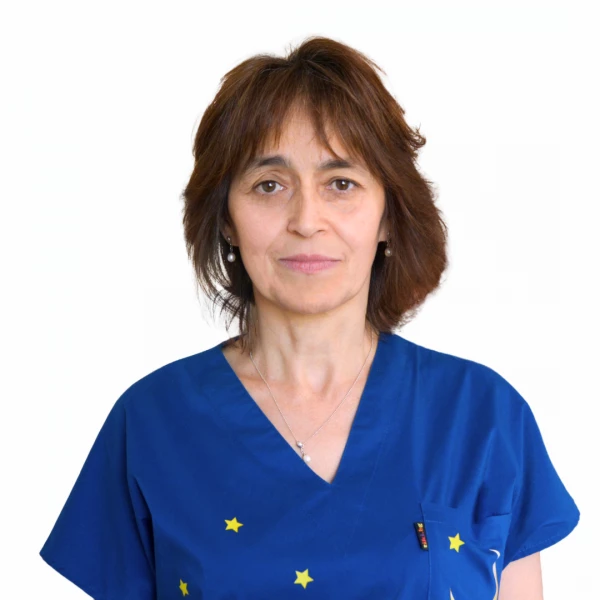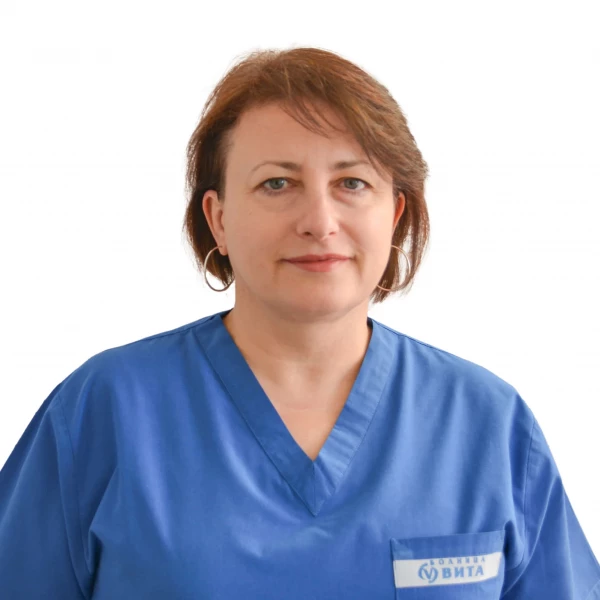General information
Primary resuscitation of all newborn as well as their adaptation to the external living conditions are carried pout at the Department of Neonatology of “Vita” Hospital. Treatment of pulmonary and cardiac pathology, jaundice in newborn and if necessary – correction of saline balance of baby is carried out. Prophylactics and treatment of arising infection in newborn. All compulsory vaccinations according to the Bulgarian immunization calendar are rendered. Daily contact is effected with the young mother for training and advices for the successive care of the newborn baby.
The department is completely equipped with all the necessary consumables and devices (couveuses, monitors, perfusors, lamps for phototherapy, etc.) and is operating non-stop - without interruption.
The Department of Neonatology at Vita is located on the second floor of the modern VITA building and was built according to the most modern European requirements for the efficiency of care for the hospital's smallest patients.
The department includes:
- Two intensive care units in the Maternity Ward, one of which is in the Operating Room for caesarean sections;
- Physiological sector with twenty beds for healthy newborns;
- Intensive sector with ten beds
- five intensive care units, /including incubator, respirator, monitor and perfusor/ for intensive treatment of at-risk newborns;
- five functional units - for post-intensive care and special care.
All premises of the Department of Neonatology are located next to the Maternity ward and Operating Room. They are on one floor and have an optimal area for their cooperative functionality, in accordance with all modern day requirements. In Vita, there is a Neonatology consultation office, which provides both free preventive examinations in the first month after birth and routine pediatric consultation of physiological infants, as well as highly specialized preventive activities such as:
- monitoring the development of children born from pathological pregnancies;
- monitoring the development of children with low birth weight;
- specific immunoprophylaxis of premature infants;
- follow-up of full-term infants undergoing intensive care.
The staff includes neonatologists with two specialties each, highly qualified intensive care nurses and midwives.
Admission of patients to the Department of Neonatology is planned or urgent.
Upon admission, the relatives of newborns are strictly informed about their rights and obligations during the stay, which are reflected in the Regulations for the Internal Order of the Department of Neonatology. Parents are notified of the position and name of all those involved in the diagnostic and treatment process, of the need for their consent to conduct all relevant examinations and treatment.
The team of the neonatology department is a supporter of exclusive breastfeeding, because the mother's milk is the best food for the newborn and young infant. We do our best to encourage mothers to breastfeed, including by raising the children entirely in the mother's room during the hospital stay, if they so wish.
The work of convincing mothers of the benefits of breast milk begins already during their pregnancy in the Schools for expecting parents, which are held every Wednesday in our hospital. During the lectures, specialists from the maternity and neonatology department introduce expecting mothers in details of breastfeeding and rearing, and teach them how to give their newborns the best possible care.
One of the responsibilities of neonatology nurses and midwives is to help mothers put their babies to the breast for the first time. They teach them how to change diapers, show them how to take care of the child's skin, what is important in bathing and handling the umbilical cord residue. Our goal is for every mother to return home fully prepared to care for her newborn baby, confident and relaxed.
Specialists in the Department of Neonatology have the skills to present the information about the health status of the newborn to his relatives in an accessible way. Parents give their written consent by signing declarations and informed consent for all diagnostic and treatment procedures that may need to be applied.
The newborn has a hospital summary, in which his condition is detailed daily and the results of all paraclinical examinations are stored.
The baby is discharged from the ward with a detailed written discharge summary.




 On this page, you can change your choices at any time after you have read and understood our
On this page, you can change your choices at any time after you have read and understood our